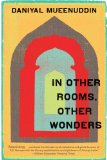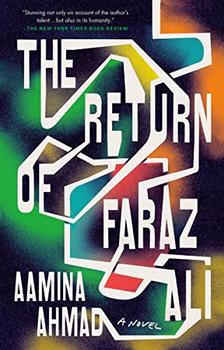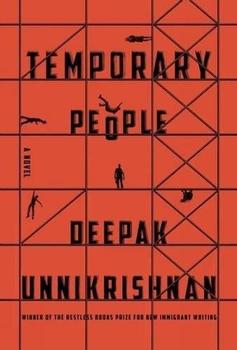Summary | Excerpt | Reading Guide | Reviews | Beyond the book | Read-Alikes | Genres & Themes | Author Bio

Daniyal Mueenuddin's first book has been called "a debut as auspicious as Jhumpa Lahiri's" (Nadeem Aslam). Considering Lahiri's debut collection, Interpreter of Maladies won the 2000 Pulitzer Prize, the comparison suggests there are high expectations for Mueenuddin. Luckily for us, his collection of eight related stories more than satisfies.
While In Other Rooms, Other Wonders can be read as a study in contrasts, from the socialite wedding in "Lily" to the marriage between a groundskeeper and a villager in "A Spoiled Man", they reveal more similarities than differences. Whether we find the characters in tree-lined estates or servants' quarters, nearly all of them are driven towards finding love or seeking advancement in post-colonial Pakistan. The effects of a feudal past on its inheritors would provide enough material for several books; Mueenuddin focuses on the drama in a handful of households, where drug abuse, murder, liaisons and the threat of cobras are equally at home with trips to the theater.
Several of these stories portray women's disappointments in marriage, adultery, or otherwise less-than-satisfying relationships. Read in a larger context, these problems could be viewed as symptomatic of a society that doesn't appear to offer viable alternatives for women to secure their futures in ways that extend beyond their reliance on a sexualized master/servant relationship. The repetition of this theme could weigh on readers sensitive to the suggestion that sex is for bargaining, but Mueenuddin handles the subject especially well. There's no sense of voyeurism in the bedroom scenes, and no overt preaching about inequality, gender roles, or social justice. The beauty of these stories is found in the absence of generalizations, and in the inclusion of telling details. Mueenuddin's attention to everything from clothing to physical gestures reveals a genuine passion for creating vibrant characters - the women remain individuals rather than seeming like messengers for a particular cause. Their suffering is not presented as the inevitable consequence for their choices, and even if some of them possess unpleasant traits, they're still captivating and multi-layered.
One of the more intriguing female characters is Sonya, the American wife in "A Spoiled Man", whose benevolence leads her to preserve a servant's shack as a memorial and as a conversation starter after his death. The gesture is a complicated mixture of public acknowledgment for his service, naïve curiosity, and tastelessness. Mueenuddin deftly illustrates Sonya's approach towards being a stranger in a strange land, where gestures of goodwill and charity can carry uncomfortable implications of superiority.
Mueenuddin often uses sudden twists-of-fate -- the appearance of a gunman, revelation of terminal illness, the timely arrival of a letter -- to catalyze the drama in his stories. Life can often bring about unexpected events, but these moments feel a little convenient at times, as though they've been included solely to hasten the story's climax and a character's demise. Nevertheless, this is a relatively minor issue in light of the author's otherwise thoughtful structure and talent for shaping female characters.
As in the best collections, the stories enhance each other, forging connections between recurrent characters and building a world where real locations like Islamabad and Lahore blend with imagined households. The stories illuminate the darker side of negotiating one's place in a country where survival depends on hustling and where a handful of nearly dynastic families still wield their power. Themes of struggle and progress may be familiar, but Mueenuddin's rich stories make them fresh and powerful, marking an auspicious debut.
Short Stories
Read the complete text of "Saleema", a story from In Other Rooms, Other Wonders, exclusively at BookBrowse.
Three other complete short stories are linked from the author's website.
![]() This review was originally published in The BookBrowse Review in March 2009, and has been updated for the
February 2010 edition.
Click here to go to this issue.
This review was originally published in The BookBrowse Review in March 2009, and has been updated for the
February 2010 edition.
Click here to go to this issue.

If you liked In Other Rooms, Other Wonders, try these:

by Aamina Ahmad
Published 2023
Sent back to his birthplace - Lahore's notorious red-light district - to hush up the murder of a girl, a man finds himself in an unexpected reckoning with his past.

by Deepak Unnikrishnan
Published 2017
Until now, the humanitarian crisis of the so-called "guest workers" of the Gulf has barely been addressed in fiction. With his stunning, mind-altering debut novel Temporary People, Deepak Unnikrishnan delves into their histories, myths, struggles, and triumphs.
Censorship, like charity, should begin at home: but unlike charity, it should end there.
Click Here to find out who said this, as well as discovering other famous literary quotes!
Your guide toexceptional books
BookBrowse seeks out and recommends the best in contemporary fiction and nonfiction—books that not only engage and entertain but also deepen our understanding of ourselves and the world around us.